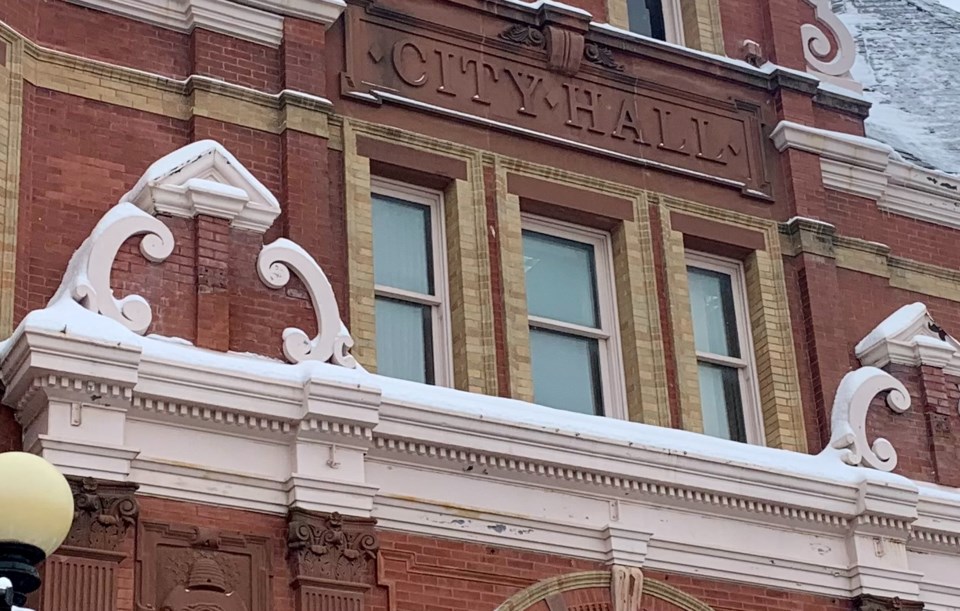A retired University of Waterloo political science professor says there is a big question facing Stratford city council.
R. Peter Woolstencroft is professor emeritus at the University of Waterloo. Woolstencroft taught political science there for 40 years.
Similar to other Stratford residents, he was "stunned" by the recent report finding that over five years, there was more than 135 improper votes made in closed city council meetings.
“This is a political culture question,” Woolstencroft said. “What do people think is appropriate behaviour and what do people think is inappropriate?”
More than 140 closed meetings between 2018 and 2024 were reviewed by Tony Fleming of Cunningham, Swan, Carty, Little & Bonham LLP, the closed meeting investigator for the City of Stratford.
Fleming found that in many of those meetings multiple items were discussed and votes were taken that were substantive in nature and needed to be done in open council to comply with The Municipal Act, which governs what can and cannot be discussed privately.
According to the Act, council meetings are open to the public and may only be held in closed under specific exceptions, such as discussing information that is subject to client-solicitor privilege.
Any substantive decision must be made in open council.
While Woolstencroft’s area of expertise is national and provincial politics, as listed on the university’s website, he said he has a vested interest in representational democracy.
In his opinion, improperly making votes and improperly discussing items in closed sessions are not common practices in municipalities across Ontario and represent a large problem for the city, staff, councillors, and citizens.
It can erode trust, the most important thing for any government.
While people don’t pay as much attention to local politics as much as they do to national or provincial politics, they have a right to pay attention, he said.
Many of the votes taken, Fleming said in the report, were “minor” or “technical” in nature, though Woolstencroft asserts that is no excuse.
“Car drivers make mistakes but if they keep on making technical mistakes, time and time again, there's a problem. And if you're making major mistakes … there's a problem.”
Woolstencroft said that he personally has an idea of the balance between public and private in municipal politics. He was the husband of the late-Lynne Woolstencroft, mayor of Waterloo from 2000 to 2003.
“I understood all the enormous things that she had to deal with and think about. It's an enormous responsibility that most citizens...only have the vaguest comprehension of. But you have an obligation to honour that responsibility by acting in the most trustful way possible.”
The report was not the first done on closed meetings by Fleming and his office.
In October 2022 another report on closed meetings, albeit a much smaller one, was issued to the city, with all of those findings also being published in the most recent report.
Fleming said that although the most recent report lists many infractions, because of the historic scope of the investigation, the findings may not reflect the current procedure of council, which reformed in 2022 with only half of council returning to serve office.
Mayor Martin Ritsma was a councillor during the majority of the investigation's scope, serving alongside Coun. Cody Sebben, Coun. Jo-Dee Burbach, Coun. Brad Beatty, and Coun. Bonnie Henderson, under former mayor Dan Mathieson.
Fleming said that since the 2022 report, there were only three infractions.
Additionally, since the new council took office in November 2022, there was only one instance of an improper vote.
Although that would indicate that things are getting better, In Woolstencroft’s opinion, one is still too many.
At the council meeting where Fleming’s report was presented, council voted to refer it to staff and legal counsel for review.
A recommendation will be provided to council on how to receive and respond to the report, which recommended more training, for an effort to be made for consistency, and to clearly word resolutions which are separate and not bundled together.
Additionally, he recommended that there should be a procedure made for moving into open sessions, when a need to vote on a substantive matter arises in closed session.
Woolstencroft urged Stratford citizens to not forget about this issue in the next election. He also urged Stratford city council to reflect on the report.
“You got two and a half years to clean up your act,” he said.



